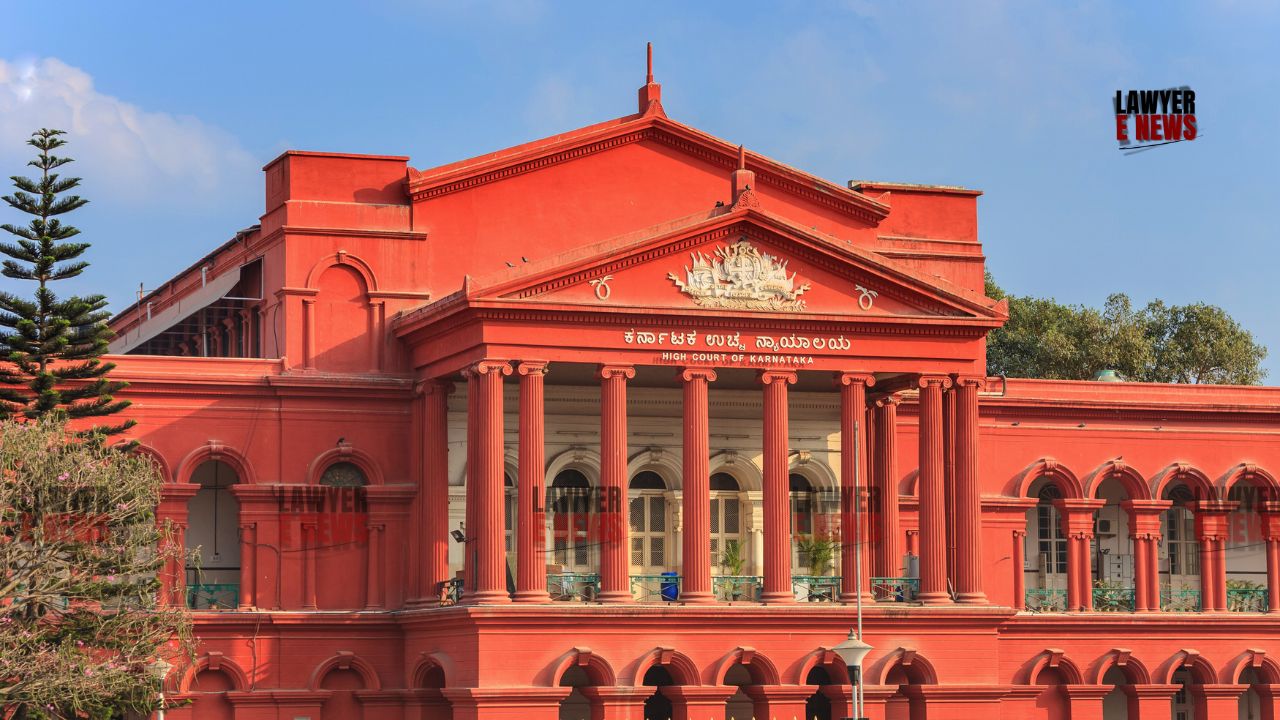-
by Admin
15 February 2026 5:35 AM



The High Court of Karnataka, in a significant ruling, has dismissed a petition seeking to quash the First Information Report (FIR) against a Panchayat Development Officer and his family members for allegedly possessing assets disproportionate to their known sources of income. Justice S. Vishwajith Shetty, presiding over the case, upheld the FIR, emphasizing that substantial prima facie evidence warranted further investigation.
The petitioners, Sri D.M. Padmanabha, his wife Smt. Bhavya, and mother-in-law Smt. Lakshmamma, were implicated in an FIR registered on January 8, 2024, under Sections 13(1)(b) read with 13(2) and 12 of the Prevention of Corruption Act, 1988. The case arose from allegations that Padmanabha, serving as a Panchayat Development Officer, had acquired assets disproportionate to his known sources of income. A preliminary enquiry conducted by the Karnataka Lokayukta led to the registration of the FIR, following the submission of a source report indicating significant discrepancies in Padmanabha's assets.
The court noted that the preliminary investigation by the Karnataka Lokayukta had revealed that Padmanabha's assets were 488.5% disproportionate to his known sources of income. "The source report prepared by the Inspector of Police contains sufficient material evidencing acquisition of assets by petitioner no.1 disproportionate to his known source of income to the tune of 488.5%," observed Justice Shetty.
The petitioners argued that the FIR was registered without a mandatory preliminary enquiry, citing the Supreme Court judgments in Lalita Kumari v. Government of Uttar Pradesh and Charan Singh v. State of Maharashtra. However, the court found that the preliminary enquiry conducted was sufficient and aligned with the principles established in these cases. Additionally, it referred to other Supreme Court rulings, including State of Telangana v. Managipet Sarveshwar Reddy, which affirmed that a detailed preliminary enquiry is not always necessary if substantial evidence exists.
Justice Shetty clarified that while a preliminary enquiry can help filter out frivolous complaints, it is not a mandatory prerequisite for registering an FIR in all corruption cases. "The officer recording the FIR can proceed against the accused on the basis of the credible information received," the judgment stated, aligning with the Supreme Court’s stance in similar cases.
The court emphasized that the role of the investigating officer is to collect material evidence and not to adjudicate the veracity of the accused’s explanations during the preliminary stage. "The Investigating Officer is only required to collect material to find out whether the offence alleged appears to have been committed," noted Justice Shetty, referencing the established judicial principles that govern corruption investigations.
The Karnataka High Court’s dismissal of the petition underscores the judiciary's commitment to allowing thorough investigations in cases of alleged corruption. The judgment reinforces that substantial prima facie evidence can justify the registration of an FIR and subsequent investigation, even without an exhaustive preliminary enquiry. This ruling is expected to impact future cases involving allegations of disproportionate assets, emphasizing the importance of credible initial evidence in initiating legal proceedings.
Date of Decision: May 27, 2024
